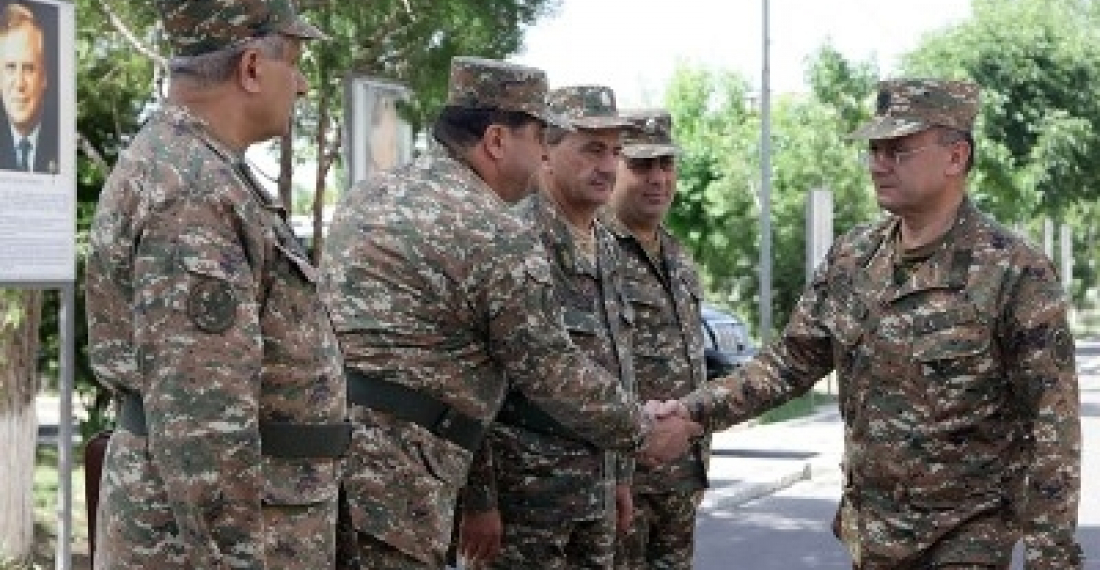Armenia and Azerbaijan have been holding large scale military manoevres over the last days.
On Wednesday, the Azerbaijan Ministry of Defence announced that it had started large scale military exercises. simulating future war scenarios. A publicity video issued by the Ministry showed dozens of tanks conducting manoevres and firing what appeared to be live ammunition.
Speaking on Saturday to young officer cadets, Azerbaijani Defence Minitser, Colonel-General Zakir Hassanov reminded his audience that the war with Armenia was not over and Azerbaijan should be ready to liberate its territories by any means.
In the meantime, Armenia on Saturday announced that it was holding what Armenian media described as "pre-planned" military exercises and it was stated that they were being held throughout the territory of Armenia. It is most likely that the exercises were aimed to test the command and control capability of the Armenian military.
Armenian Defence Minister Seyran Ohanyan inspected the manoevres. Earlier Ohanyan spoke of the victories of the Armenian Army during the Karabakh war and since and lauded the heroism of Armenian troops on the front line.
source: commonspace.eu with agencies
photo; Armenian Defence Minister Seyran Ohanyan inspecting military exercises held throughout Armenia on Saturday, 30 May 2015. (Picture courtesy of news.am)







